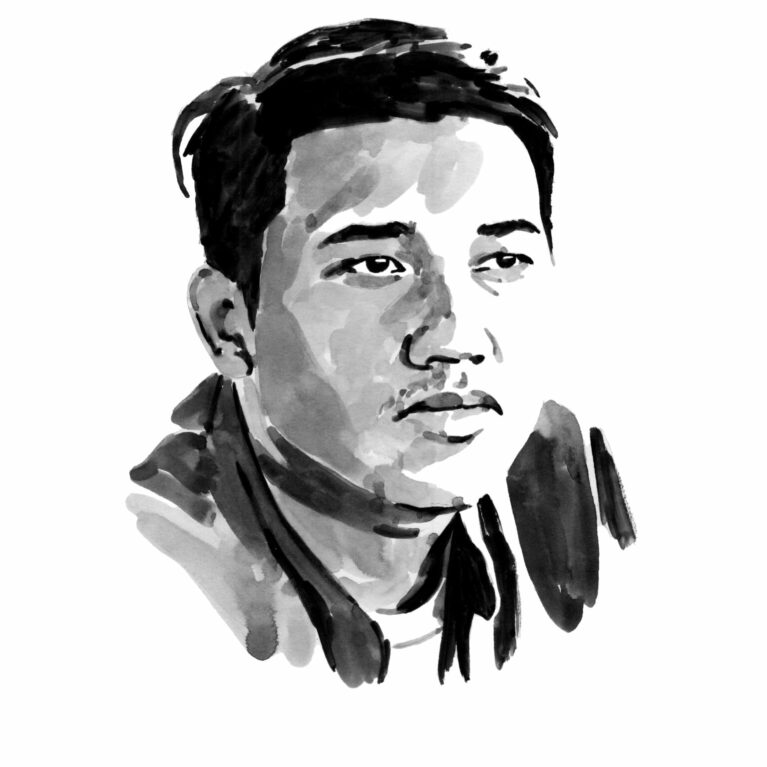M Said Ramdlan

Who I am
I was born on the small island of Lombok in West Nusa Tenggara, a province of Indonesia known for its stunning landscapes and rich biodiversity. From childhood, I developed a strong passion for exploring nature, understanding its composition and wondering how to co-exist with it in sustainable ways. This curiosity steered my academic pursuits towards natural sciences. I studied for my Bachelor’s degree in chemistry, which allowed me to examine environmental issues at micro-level. After graduating from Mataram University, I worked as an assistant researcher for environmental impact analysis and assessment. During this period, my dedication to environmental issues deepened, leading me to pursue a Master’s degree in environmental sciences at Wageningen University in the Netherlands. This study provided a broader, macro-level perspective to environmental challenges, revealing the complex interplay between social and natural sciences. In 2019, after achieving my Master’s degree, I had the opportunity to collaborate with Dr Hollie Booth, an interdisciplinary conservationist from the UK who at the time was conducting her PhD research in Lombok on conserving Critically Endangered species while maintaining human well-being. This experience revived my childhood curiosity and since then I have been working with Dr Booth and other colleagues to find better solutions for both humans and nature at Kebersamaan Untuk Lautan Foundation. I have also recently embarked on my PhD degree in coastal and marine resources management at IPB University in Indonesia, focusing on the conservation of Critically Endangered sharks and rays through a social-ecological systems approach as a member of the Social-Ecological System and Ocean (SESO) research group. Through my diverse experiences and interdisciplinary knowledge, I aim to find solutions to complex environmental challenges.
Where I work
My work so far has been conducted in Indonesia, especially in the provinces of Aceh and West Nusa Tenggara. Indonesia is a global hotspot of marine biodiversity and the world’s largest shark- and ray-fishing nation, where many people are highly dependent on fishing for their daily sustenance. In many coastal areas in Aceh and West Nusa Tenggara, Critically Endangered species are frequently caught and retained because of their subsistence and economic value. My project site, Lunyuk, is located on the south coast of Sumbawa in West Nusa Tenggara and is an under-studied area of critical habitat for hammerhead sharks and wedgefish, which are caught daily by small-scale fishers using various types of fishing gear, including gill nets, longlines and handlines. Daily shark and ray landings in Lunyuk are mostly juvenile sharks and rays. As in Aceh, fishers in this area mostly target reef and demersal fish, but still retain incidentally caught sharks and rays to eat or sell. My current PhD research focuses on this area to determine how social and ecological systems can connect to promote shark and ray conservation and subsequently to devise suitable interventions that bring about positive outcomes for humans and the species.
What I do
I am a PhD researcher and a programme coordinator at Yayasan Kebersamaan Untuk Lautan (KUL), therefore my daily routine is a mixture of both research and project management responsibilities. For example, some days I work at my laptop to perform data analysis and write papers and reports and other days I am running workshops and coordinating with other stakeholders, researchers and policy-makers. As a project coordinator, my primary tasks include managing team members to make sure that field work is updated as well as organising regular meetings to facilitate effective communication and collaboration among the team members. Besides the desk job and coordination, I enjoy conducting interviews and meeting with local people as that can refresh and boost my knowledge and experience of current developments and trends. Especially when working at KUL, I frequently conduct baseline/scoping surveys to study the complexity of shark and ray conservation and determine appropriate interventions. Furthermore, working as a programme coordinator at KUL, I have more opportunities to meet and learn from other experts in Indonesia, especially about research into sharks and rays that uses different approaches in other locations.
